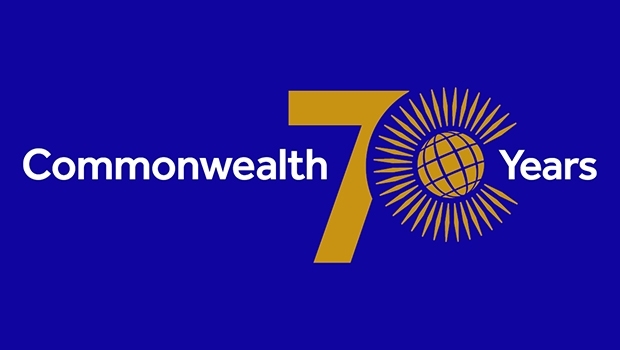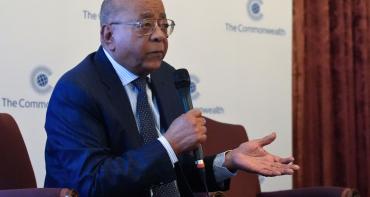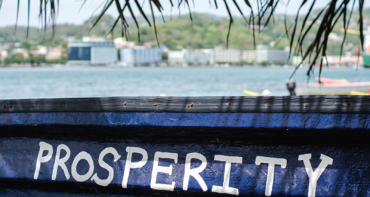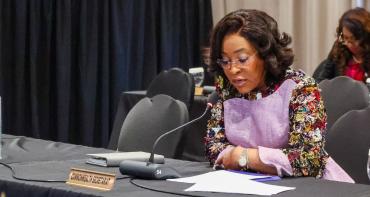
Declaration by Commonwealth Prime Ministers
London, UK, 1951
The Prime Ministers of the United Kingdom, Canada, Australia, New Zealand, India, Pakistan, Ceylon, and Southern Rhodesia, and the South African Minister for the Interior, representing the Prime Minister of South Africa, desire, before concluding the present London Meeting, to state in simple terms some of the great principles which have inspired the discussions and strengthened mutual understanding.
Our historic Commonwealth, which comprises one-fourth of the world’s population and extends over all the continents and oceans of the world, is singularly well constituted to enable it to study and in some measure to comprehend the vexed questions which beset the world. These do not fit neatly into old patterns. In Europe there are grave and urgent problems which must be solved, and in Asia the rise of new nations and new national unities must be recognised, if peace is to be secured on a basis of justice and prosperity.
The Commonwealth has the unique quality of embracing nations and peoples from every continent. Our own meetings have, therefore, given us special knowledge, and have left us with a special sense of responsibility.
We are, both jointly and severally, pledged to peace. This is not merely a pledge given to other nations; it is solemnly given to our own.
We believe that there are certain courses which must be pursued if real peace is to come.
First, the wounds of the last war must be healed; settlements with Germany and Japan should be made with speed.
Second, we must do what we can to understand those who appear to differ from us. The great antidote to war is hope; its greatest promoter is despair. When we say that war is not inevitable, we do not just mean that we shall prepare and be strong, and that our strength may deter aggression. We also mean that, in a world worn out and distorted by war, there must be an overwhelming majority of the people of all lands who want peace. We must not despair of reaching them. In all our discussions we have made it clear to each other, as we now do to the world, that as Commonwealth Prime Ministers we would welcome any feasible arrangement for a frank exchange of views with Stalin or with Mao Tse Tung. We should, in the name of common humanity, make a supreme effort to see clearly into each other’s hearts and minds.
We do not seek to interfere in the affairs of the Soviet Union or China or any other country; we are simply determined to retain the mastery of our own affairs, without fear of aggression.
It is with these considerations in mind that in the last few days we have directed our efforts to the securing of a cessation of hostilities in Korea, so that around the conference table the Great Powers concerned may compose their differences on a basis which will strengthen the United Nations and fulfil the purposes of the Charter.
We all have deep within us a faith in the existence of a purpose of justice in this world, and we believe it to be our duty to forward it by everything we do. Indeed, this sustaining, faith derives added strength from the fact that at our meetings it has been simply and sincerely expressed by men of different races, traditions and creeds.
We think it proper to declare once more that the Commonwealth countries, though they have a special and precious association which they value profoundly, do not regard themselves as some sort of exclusive body. They welcome co-operation with other nations. It has been their privilege to be able to work closely with the United States of America, whose efforts in the direction of assisting many war-stricken nations are warmly regarded, and whose practical support of the United Nations has contributed much to the strength of that organisation. We will at all times seek, by process of discussion, to promote the utmost harmony among ourselves and to arrive at common international policies with the United States, and with all other friendly and co-operative nations.
Our support of the United Nations needs no re-affirmation. The Commonwealth and the United Nations are not inconsistent bodies. On the contrary, the existence of the Commonwealth, linked together by ties of friendship, common purpose and common endeavour, is a source of power behind the Charter.
We of the Commonwealth recognise that the peace and prosperity of the free world cannot be assured while millions live in poverty. We are therefore resolved, while keeping our own economies strong, to promote economic and social development in the under-developed countries, by providing such financial and economic assistance as we can command and by making full use of our resources of scientific and technical experience. The Colombo Plan is practical evidence of this intention. The Commonwealth countries concerned will continue to contribute, to the full extent of their ability, towards the execution of this and similar schemes for developing economic resources and raising social standards.
In brief, the problem of peace is that of removing the causes of war; of easing tension and promoting understanding; of assisting those less- developed nations which need our aid; of being at all times willing to discuss our differences without foolishly assuming that all attempts to secure peace are a form of ‘appeasement’. We will cultivate the friendships we now have, and hope that with wise approaches differences may become less and ultimately disappear.
But, while we say these things with a full heart, we are bound to add that, so long as the fear of aggression exists, we will have to strengthen our defences with all speed and diligence. This may well result in placing heavy burdens up on our peoples. It is our firm belief that the rule of law should govern human conduct; and we are prepared to accept whatever sacrifices may be necessary to uphold, with all other nations, those principles of international law and order which are essential conditions for world peace and progress.
Issued at the Commonwealth Prime Ministers Meeting, London, United Kingdom, 4-13 January, 1951.



